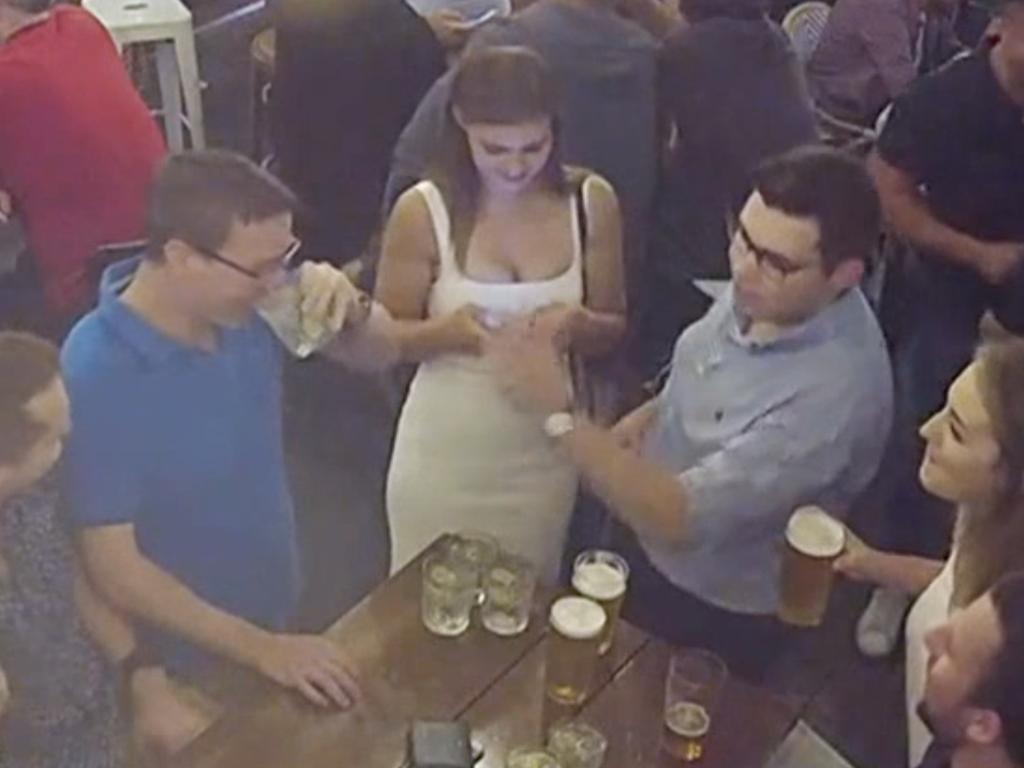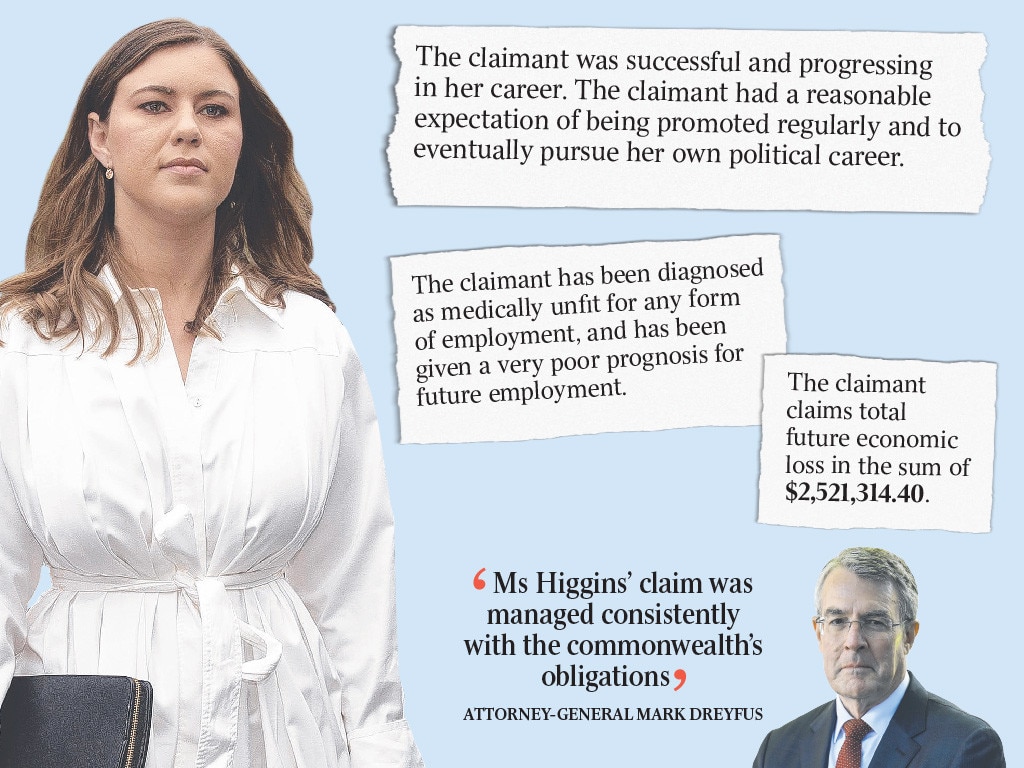
After managing to escape, I sought help from a nearby petrol station attendant, who called the police. Subsequently, I was questioned at Hindley Street police station, where major crime detectives took charge of the case with urgency and professionalism.
Despite the passage of nearly two decades, the memories of those detectives taking notes and mobilising to make an arrest remain vivid in my mind.
Recently, Senator Lidia Thorpe accused Senator David Van of sexual assault allegations under parliamentary privilege, which he vehemently denies.
Strikingly, she also declared she would not involve the police. In a similar vein, Finance Minister Katy Gallagher – also relying on parliamentary privilege – proclaimed herself judge and jury in Brittany Higgins’ rape case, expressing her belief in the allegations against Bruce Lehrmann, which he has consistently denied.
These instances reflect a concerning trend of adjudicating sexual assault allegations outside the traditional framework of the criminal justice system. While it is true the system can be challenging for victims to navigate, necessitating ongoing reforms, this extrajudicial approach is likely to harm women more than it helps them.

A prime example is the controversy surrounding Brittany Higgins herself. The Sofronoff inquiry has revealed that she purposefully delayed lodging an official complaint with the police regarding her alleged sexual assault.
Instead, she took her complaint to Samantha Maiden, from news.com.au, and Lisa Wilkinson, from The Project. In her March 4 Justice speech in Canberra in 2021, Higgins dismissed due process and the presumption of innocence as mere “throwaway phrases”, claiming the “justice system is notoriously stacked against victims of sexual crime”.
Undoubtedly, prosecuting sexual crimes is a difficult task. Research indicates juries are more likely to convict when there is proof of physical trauma or when the defendant is promptly arrested following the crime. Convictions based solely on the complainant’s testimony are far less common.
According to a study published by the Australian Institute of Criminology, which examined the decision-making process in sexual assault cases, Crown prosecutors from five Australian jurisdictions highlighted factors influencing whether a case proceeds to court and leads to conviction. One prosecutor interviewed explained that juries tend to seek corroborating evidence and value physical or forensic evidence or the support of additional eyewitnesses. The reliance on hard evidence rather than the complainant’s word is a common expectation.
However, aside from corroborating evidence, research indicates the victim’s willingness to co-operate is the foremost predictor of conviction. Unfortunately, a disheartening reality is that the majority of sexual assault victims know their assailants.

The Australian Bureau of Statistics’ Personal Safety Survey found that out of 639,000 women who experienced sexual assault by a male perpetrator, 87 per cent knew the perpetrator, with intimate partners being the most common (51 per cent).
The PSS also revealed only 26 per cent of women perceived the incident as a crime at the time. It follows that if victims do not perceive the assault as a crime when it occurs, they are unlikely to report it within a time frame that allows for the collection of forensic evidence. Consequently, the low conviction rates for such crimes persist.
In cases involving intimate relationships between the victim and the perpetrator, it is not uncommon for victims to withdraw their complaints. A prosecutor interviewed in the aforementioned study emphasised that the complainant’s wishes and wellbeing play a central role in the decision-making process: “The overwhelming factor is the wishes and wellbeing of the complainant. I rarely proceed if the complainant doesn’t want to … I make sure they’re taking an informed position. If they’re frightened of the system, I try to explain it to them, encourage them by reminding them about how far they’ve come and the gains they’ve made. I acknowledge their progress and allay their fears through information and by demystifying the process. If they’re recalcitrant and I’m unable to confirm their position, I recommend discontinuance.”

Given the difficulty in prosecuting sexual assault, it is understandable some victims may desire to take matters into their own hands and seek retribution through the media or in parliament. This form of extrajudicial justice provides a faster – and potentially more emotionally satisfying – alternative to the slow path of seeking justice through the traditional channels. However, it may have unexpected repercussions. Prosecuting a sexual assault case through parliamentary privilege or the media may invite a defence mounted the same way.
The challenges associated with prosecuting sexual assault cases within the court system are well-known, and multiple waves of reform have attempted to address them. While it is understandable some women would want to opt out of the process, it would be detrimental if high-profile women actively discouraged the reporting of assaults. It is also unjust to claim police and prosecutors do not care about victims of crime.
In my own case, which was a brutal physical assault and not a sexual assault, my assailant was convicted when prosecutors presented photographic evidence of my lacerated face to the court. While I had limited interaction with the public prosecutors involved, the detectives who investigated my case were supportive and reassuring every step of the way. Nevertheless, even with a conviction, the associated emotional injury did not suddenly vanish overnight. The courts are not a psychiatric service, and it took years of hard work for me to get back to a place where I felt psychologically healthy.

Nonetheless, I am grateful I chose to involve the police. The officers I encountered were professional and attentive, and it was clear they were committed to the wellbeing of victims. Discouraging women from reporting incidents to such authorities and repeatedly condemning the system as “broken” is unlikely to benefit women and girls in the long run. On the contrary, girls and women should be encouraged to report crimes as soon as they happen, and they should be made aware of the importance of evidence in securing convictions.
Instead of condemning the criminal justice system, our leaders should be making efforts to demystify it, explain it and support it. While it is not a panacea, it remains the most powerful avenue we have in the pursuit of justice.
Claire Lehmann is founding editor of online magazine Quillette.








Eighteen years ago, I was the victim of a violent crime when my ex-boyfriend assaulted me in an Adelaide carpark late at night.